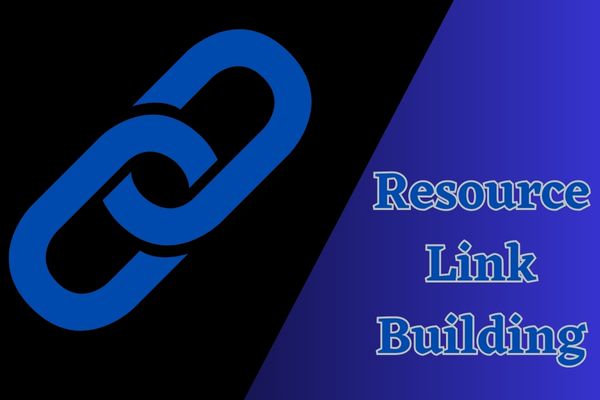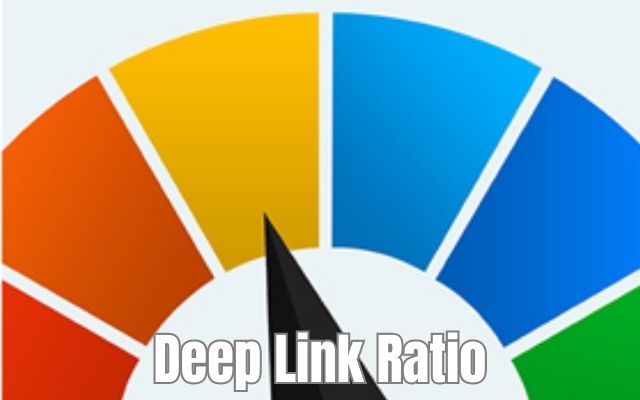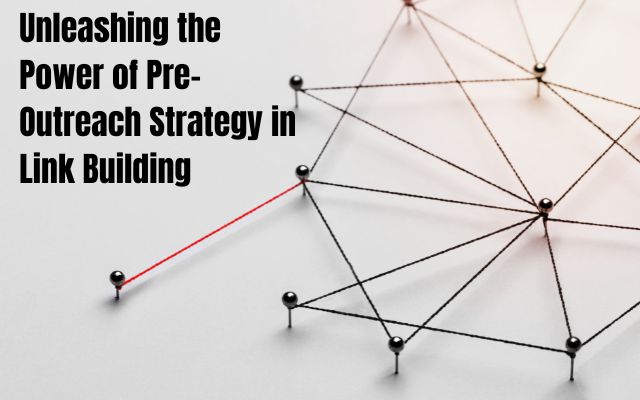Building Stronger Connections: A Comprehensive Guide to Resource Link Building Strategies

This comprehensive guide provides information on resource link building strategies, providing valuable insights and actionable tips to help you develop a robust link profile. In the world of search engine optimization (SEO), building quality links is essential to improve your website’s visibility and organic rankings. Among the various link building strategies, resource link building has emerged as a powerful technique to not only increase the authority of a website, but also strengthen its connection with relevant online communities.
What is Resource Link Building?
Resource link building is a type of link building strategy where you create valuable, informative content that other websites and blogs want to link to. This can include things like how-to guides, tutorials, infographics, research reports, and other types of content that provide value to your target audience.
The idea behind resource link building is simple: by creating valuable content that other sites want to link to, you can earn high-quality backlinks to your website. These backlinks not only improve your search engine rankings, but they also drive targeted traffic to your site from other relevant websites in your niche.
Why is Resource Link Building Important?
Resource link building is important for several reasons. First, it helps to improve your search engine rankings. When other high-quality websites link to your site, it sends a signal to search engines that your content is valuable and authoritative. This can help to improve your search engine rankings, which in turn can drive more traffic to your site.
Second, resource link building can help to drive targeted traffic to your site. When other websites link to your content, it exposes your brand to a new audience who may be interested in your products or services. This can lead to new customers and increased revenue for your business.
Finally, resource link building can help to establish your brand as an authority in your niche. When other websites link to your content, it signals that you are a trusted source of information in your industry. This can help to build brand awareness and credibility, which can lead to increased trust and loyalty from your target audience.
Benefits of Resource Link Building
- Enhanced Search Engine Rankings: Resource link building is a powerful SEO strategy that can improve your website’s visibility in search engine results pages (SERPs). As you acquire more high-quality backlinks, search engines recognize your website as an authoritative source, leading to higher rankings for relevant keywords.
- Increased Website Authority: Backlinks from reputable and relevant websites contribute to the overall authority of your website. A strong link profile demonstrates your website’s expertise and trustworthiness, attracting more organic traffic and opportunities for collaboration.
- Targeted Traffic Generation: Resource links from relevant websites drive targeted traffic to your site. Users who are genuinely interested in the information or tools you provide are more likely to engage with your content, leading to higher conversion rates.
- Relationship Building and Networking: Resource link building involves reaching out to website owners and influencers in your industry. This process allows you to establish relationships, collaborate on future projects, and leverage the expertise of others in your field.
Differentiating Resource Links from Other Link Types
Resource links differ from other link types in terms of their purpose and the content they link to. While other links may point to product pages, homepages, or blog posts, resource links specifically direct users to valuable resources on your website. These resources are typically in-depth, well-researched, and offer unique insights or tools.
Unlike promotional links that focus on promoting a specific product or service, resource links aim to provide valuable information or tools to users. The primary goal of resource link building is to showcase your expertise and establish your website as a go-to resource in your industry.
Resource links are often found on resource pages, curated lists, or recommended tools sections of other websites. They are highly valuable because they not only drive traffic but also provide users with valuable and actionable content that can assist them in solving a problem or gaining knowledge.
By understanding the definition, importance, and benefits of resource link building, you can lay a solid foundation for implementing effective strategies that drive organic traffic, improve search engine rankings, and build strong connections within your industry.
Effective Resource Link Building Strategies
Now that we’ve covered the basics of resource link building, let’s take a look at some effective strategies for implementing this technique:
1.Create Valuable, Informative Content
The first step in resource link building is to create valuable, informative content that other websites want to link to. This can include things like how-to guides, tutorials, infographics, research reports, and other types of content that provide value to your target audience.
When creating content, it’s important to focus on quality over quantity. Instead of creating a large volume of mediocre content, focus on creating a smaller number of high-quality pieces that provide real value to your audience. This will increase the likelihood that other websites will want to link to your content.
2. Conduct Outreach to Relevant Websites
Once you’ve created your content, the next step is to reach out to relevant websites and blogs to promote your content and ask for a link. This can be done through email outreach, social media, or other forms of communication.
When reaching out to other websites, it’s important to personalize your outreach message and explain why your content would be valuable to their audience. It’s also important to make it clear that you are not simply asking for a link, but that you are offering something of value in exchange for the link.
3. Build Relationships with Influencers and Industry Experts
Another effective resource link building strategy is to build relationships with influencers and industry experts in your niche. By connecting with these individuals, you can increase the visibility of your content and improve your chances of earning high-quality backlinks.
To build relationships with influencers and industry experts, consider reaching out to them on social media, commenting on their blog posts, or sharing their content with your audience. Over time, you can establish a relationship with these individuals and work together to promote each other’s content.
4. Use Link Roundups
Link roundups are a popular type of blog post where websites curate a list of the best content on a particular topic from around the web. This presents an opportunity to get your content in front of a new audience and earn a high-quality backlink.
To take advantage of link roundups, search for relevant roundups in your niche and reach out to the website owner to suggest your content for inclusion. Be sure to provide a brief summary of your content and explain why it would be valuable to their readers.
5. Guest Posting
Guest posting is another effective resource link building strategy. This involves writing a guest post for another website in your niche and including a link back to your own site in your author bio or within the content.
When guest posting, it’s important to choose high-quality websites that have a relevant audience and a strong online presence. You should also focus on providing high-quality content that adds value to the website’s audience.
Identifying Resource Opportunities
Conducting Niche Research
To identify resource link building opportunities, it’s crucial to conduct thorough niche research. This involves understanding your target audience, industry trends, and the topics that resonate with your audience. By exploring forums, social media groups, and industry-specific websites, you can gain insights into the information gaps or needs within your niche.
Analyzing Competitors’ Backlink Profiles
Analyzing your competitors’ backlink profiles can provide valuable information about potential resource link opportunities. Identify websites that are linking to your competitors’ resources and assess their relevance, authority, and potential for linking to your content as well. Tools like Moz, Ahrefs, or SEMrush can help you uncover and analyze competitor backlinks.
Identifying Resource Pages and Linkable Assets
Search for existing resource pages within your niche that compile valuable resources for users. Look for websites that regularly update and curate such pages. Additionally, identify linkable assets on your own website, such as informative articles, comprehensive guides, infographics, or tools that can provide value to users. These linkable assets will be the foundation for your resource link building strategy.
Crafting Link-Worthy Resources
Creating High-Quality Content
- Original Research and Data-driven Content: Conducting original research or presenting data-driven insights in your industry can attract attention and generate backlinks from other websites seeking to reference reliable information.
- Comprehensive Guides and Tutorials: Creating comprehensive guides or tutorials that offer step-by-step instructions or in-depth knowledge on a particular topic can establish your website as a valuable resource and attract links.
- Infographics and Visual Content: Visual content like infographics or data visualizations can be highly shareable and link-worthy. They present information in a visually appealing format, making it easy for others to embed and link back to your website.
Developing Tools, Widgets, and Plugins
Creating useful tools, widgets, or plugins related to your industry can be an effective way to generate resource links. These tools should provide practical value to users and encourage other websites to link to them as a helpful resource.
Curating Expert Roundups and Interviews
Curating expert roundups or conducting interviews with influential individuals in your industry can provide unique insights and perspectives. By featuring these experts on your website, you can attract links from their followers and establish relationships with industry influencers.
Outreach and Relationship Building
Finding Relevant Websites and Influencers
Identify websites and influencers in your niche that would find value in your resources. Look for websites that curate resource pages, run blogs, or actively share industry-related content. Social media platforms, industry forums, and professional networks can be valuable sources for finding relevant websites and influencers.
Personalizing Outreach Messages
When reaching out to website owners or influencers, personalize your outreach messages to demonstrate that you have done your research and genuinely appreciate their work. Highlight specific reasons why your resource would be valuable to their audience and offer to collaborate or provide additional information if needed.
Building Genuine Relationships
Engage in social media interactions with influencers and website owners by sharing their content, commenting on their posts, or participating in discussions. Contribute to relevant online communities and forums, providing valuable insights and building relationships with like-minded individuals.
Maximizing Resource Link Building Opportunities
Guest Posting and Contributing to Industry Publications
Offer to write guest posts or contribute valuable content to industry publications. This allows you to showcase your expertise, reach new audiences, and acquire resource links back to your website.
Participating in Link Roundups and Resource Lists
Keep an eye out for link roundups or resource lists within your industry. These are blog posts or articles that compile valuable resources on a particular topic. Reach out to the authors of these roundups or lists, suggesting your relevant resource for inclusion. If your resource meets their criteria, they may add it and provide a backlink.
Collaborating with Partners and Industry Influencers
Collaborate with industry partners or influencers to create valuable content together. This could include co-authoring an article, hosting a joint webinar, or conducting a podcast interview. By leveraging each other’s networks and expertise, you can generate resource links and expand your reach.
Monitoring and Measuring Success
Tracking Backlinks and Referral Traffic
Regularly monitor your backlink profile using SEO tools like Moz, Ahrefs, or Majestic. Keep track of new backlinks acquired through your resource link building efforts. Additionally, analyze your website’s referral traffic to see which resources are generating the most visits from external websites.
Utilizing SEO Tools and Analytics Platforms
Utilize SEO tools and analytics platforms like Google Analytics to measure the impact of resource link building on your website’s performance. Track metrics such as organic search traffic, rankings, and conversions to assess the effectiveness of your strategies.
Evaluating Key Performance Indicators (KPIs)
Establish key performance indicators (KPIs) to evaluate the success of your resource link building campaign. These could include the number of acquired resource links, increases in organic search rankings and traffic, engagement metrics, and conversions. Regularly review and analyze these KPIs to refine your strategies and optimize results.
Best Practices and Potential Pitfalls
Following Ethical Guidelines and Quality Standards
Ensure that your resource link building practices align with ethical guidelines and quality standards set by search engines. Avoid engaging in manipulative tactics, such as buying links or participating in link schemes, as these can result in penalties. Focus on providing genuine value and building organic relationships.
Avoiding Common Mistakes and Black Hat Tactics
Steer clear of common mistakes, such as mass emailing generic outreach messages, ignoring relevancy when pursuing links, or using automated link-building tools. Also, avoid black hat tactics like link cloaking, hidden links, or irrelevant anchor text. These practices can harm your website’s reputation and rankings.
Adapting Strategies to Algorithmic Updates
Stay informed about algorithmic updates by search engines and adapt your strategies accordingly. Algorithm changes can impact how search engines evaluate and value backlinks. Stay up to date with industry news and SEO resources to ensure your resource link building techniques align with the latest best practices.
Read Also:
- Unlocking the Power of Guest Blogging: Strategies and Tips for Building Your Online Presence
- The Art of Link Building: Strategies and Techniques for Success
- Reaching New Heights: A Comprehensive Guide to the Skyscraper Technique in Link Building
- Social Signals for Link Building: How to Harness the Power of Social Media for SEO Success
- Unlocking Lost Opportunities: A Guide to Link Reclamation for Boosting Your Online Presence
To summrise,
Resource link building is an effective way to build high-quality backlinks to your website and improve your search engine rankings. By creating valuable content and building relationships with influencers and industry experts in your niche, you can increase visibility of your brand and drive targeted traffic to your site.
Note: Key to successful resource link building is to focus on providing real value to your audience. By creating high-quality content that solves problems and addresses the needs of your target audience, you can earn the trust and loyalty of your readers and establish your brand as an authority in your industry.







